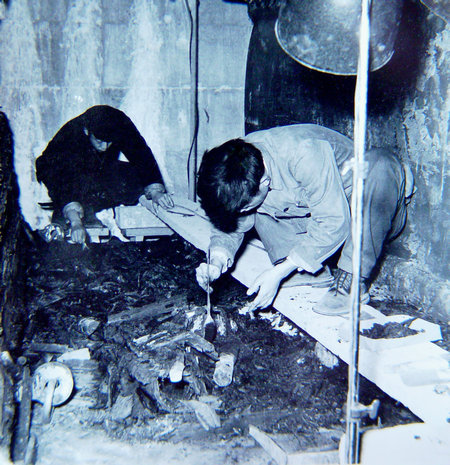 |
|
Archaeologists clearing the coffins at Dingling Mausoleum. [Photo provided to China Daily]
|
They did not lack for choice. Of all the sixteen emperors of the Ming Dynasty, 13 were buried in the region. The immense burial ground, with meandering mountains as the backdrop, is known today as the Ming Mausoleums.
Hardly had the excavation team got down to work, than they realized they faced a giant conundrum, the answer to which the designers and builders of the mausoleums had tried everything to hide. With no clues yielded by the ground of the tombs they were aiming for, frustrated members eventually decided to focus on any mausoleum that might give them a tip-off. That was when someone noticed a caved-in section on a wall surrounding the circular ground that constitutes the second half of the mausoleum's design.
The entire layout of the mausoleum is split in two-a rectangular part at the front and a circular part at the back, separated by a stone tower known as ming lou, or the Worldly Tower. The different shapes were meant to represent Earth and Heaven, believed by ancient Chinese to be in a square and a circle respectively.


























 Raymond Zhou:
Raymond Zhou: Pauline D Loh:
Pauline D Loh: Hot Pot
Hot Pot Eco China
Eco China China Dream
China Dream China Face
China Face






